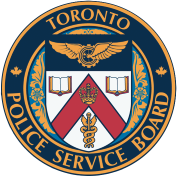
XXXIII LE-006 – Criminal Investigation Management
|
REPORTING REQUIREMENT |
|
|
LEGISLATION |
Police Services Act, R.S.O. 1990, c.P.15, as amended, s. 31(1)(c). Adequacy & Effectiveness of Police Services, O. Reg. 3/99, ss. 9(1), (3), 11(1)(a)(b)(c)(e)(f), 11(2), 11(4), 12(1), 12(2), 14(1)(a)(c). |
The objective of Criminal Investigations Management and Procedures is to ensure that investigations into criminal acts:
- Are effectively and efficiently investigated by qualified investigators and overseen by investigative supervisors;
- Respect the individual rights of victims, persons of interest, suspects and witnesses alike; and
- Are capable of supporting a successful prosecution of the person(s) for the criminal acts in question.
Therefore, it is the policy of the Toronto Police Services Board that:
- The Chief of Police will ensure that the Service provides the services of qualified criminal investigators by using Service members. Criminal investigators, when not training or investigating criminal matters and/or occurrences, may undertake community patrol or any other duties as assigned.
- The Chief of Police will prepare a criminal investigation management plan, consistent with the Adequacy Standards Regulation, that:
- lists occurrences for which a police officer is required to contact a supervisor as soon as practicable;
- permits the supervisor to assign responsibility to undertake or manage an investigation of an occurrence listed in the plan to any police officer, whether or not the police officer is a criminal investigator;
- list occurrences for which the supervisor must assign responsibility to undertake or manage an investigation of an occurrence to a qualified criminal investigator;
- addresses the monitoring by supervisors of criminal investigations; and
- identifies specific occurrences, as designated by the Minister of The Solicitor General, for which the Service will notify another police service, unit or task force designated by the Minister of The Solicitor General;
- The Chief of Police will establish procedures that require supervisors to ensure that criminal investigations of occurrences, as listed in the plan, are assigned to qualified Service members;
- The Chief of Police will establish procedures for obtaining assistance of qualified personnel from another police service or any other external agency in relation to undertaking or managing a criminal investigation of an occurrence, if required;
- The Chief of Police will develop and maintain procedures and processes for undertaking and managing general criminal investigations;
- The Chief of Police will ensure that persons providing scenes of crime analysis and forensic identification investigative supports meet the requirements of the Adequacy Standards Regulation;
- The Chief of Police will ensure that the Service provides investigative supports, including supports in the areas of scenes of crime analysis, forensic identification, canine tracking, technical collision investigation and reconstruction, breath analysis, physical surveillance, electronic interception, video and photographic surveillance, polygraph and behavioural science by using Service members who have the knowledge, skills and abilities to provide that support;
- The Chief of Police will establish procedures and processes regarding:
- the investigative supports referred to in section 7 above; and
- obtaining, when required, expert or specialized assistance from another police service or external agency, with respect to a criminal investigation.
adequacy standards, law enforcement, investigation of crimes